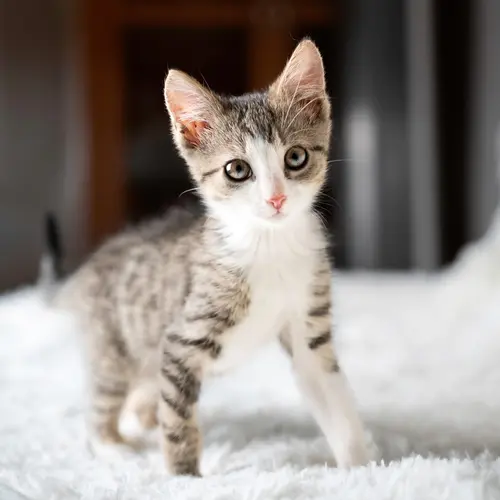There are over 7 million domesticated horses kept as pets and working animals in the U.S. There are over 1 million horse owners and almost 460,000 farms specifically for horses. These animals are loved by their owners, who use them for companionship, travel, recreation, and labor. How long do horses live when cared for by their owners?
Lifespan of Horses
The average horse lives for 25 to 30 years. However, in rare cases, domestic horses have lived into their 50s or 60s. There are many factors that affect the lifespan of a horse including:
- Nutrition
- How many times they have reproduced
- Diseases
- Dental health
- Level of physical activity
There are many things you can do to give your horse their best and longest possible life.
Nutrition. A horse's diet should mainly consist of hay or grass. Make sure it’s clean and free of dust and mold. Horses should have small meals throughout the day. If they get too hungry for too long, they risk developing ulcers.
Provide constant access to food and water, so your horse can eat and drink when they wish.
You should also include grains in your horse's diet. Feed them grains sparingly. They are high in carbohydrates. They give horses energy, but giving too much grain to a horse can lead to joint problems.
If you change their diet too quickly, your horse may develop some digestive problems. So, if you travel with your horse, bring along enough of their usual food to avoid changing their food quickly. Make any food changes gradually.
Veterinary care. Like all pets, horses need regular veterinary care. They may need the following vaccinations:
- Rabies
- Tetanus
- Encephalomyelitis
- Influenza
- Equine herpesvirus 1
- Equine herpesvirus 4
- Botulism
- Potomac horse fever (equine monocytic ehrlichiosis and equine ehrlichial colitis)
- Equine viral arteritis
- Rotavirus
- West Nile virus
- Strangles (Streptococcus equi)
Vaccinations make horses' lives longer by preventing them from getting sick with common illnesses. The vaccinations your horse needs depend on their age, how much they travel, and your location, so talk to your vet about what is needed for your horse.
You also need to have your horse's manure examined for worms regularly and ask your vet for the best deworming medicines. You can lower the risk of worms by giving your horses enough space and removing their manure on a regular basis.
Horses also need to have their teeth checked and filed by a vet once or twice a year (called floating). Horse teeth never stop growing. They can develop uneven wear, which can lead to eating problems. Filing them professionally evens them out. Have your vet also check your horse's teeth for rotting.
Horse housing. Horses need a clean place where they can be safe from the weather. They need a three-sided structure they can enter whenever they want. A barn or fully closed building is even better. The building provides protection from rain, wind, snow, heat, and insects.
You need to keep the building clean by removing manure daily.
In addition to housing, during extreme weather, your horse may need extra care. Give them plenty of water when it is hot out. During heat waves, give them minerals, like a salt lick, to prevent dehydration. Put a waterproof horse blanket on them when the weather is cold and wet.
Exercise. All horses need regular activities, like riding. They also need a pasture to walk around when they want to. Make sure the pasture has a sturdy fence that does not use barbed wire. Horses should not be kept in a stall for a whole day unless recommended by a vet because of an injury.
Hoof care. A horse with healthy hooves is a healthy horse. Hoof problems can stop a horse from exercising. Trim a horse's hooves every month or two. Depending on your horse's body type and activity level, consider putting horseshoes on them to keep their hooves in great condition.
Other Things to Know About Horse Lifespan
There is only one species of horse — Equus caballus. But there are many different breeds and types of horses. While they are all the same species, wild horses live fewer years than domestic horses because they don't have a balanced diet, veterinary care, and regular shelter. The longest living wild horse was 36 years old, while the oldest domestic horse was 62.
Additionally, different horse breeds may have slightly different lifespans. Smaller breeds like ponies tend to live longer. Larger breeds tend to live for fewer years.
Determining a horse's age can be difficult but their teeth can be an indication. Maintain any paperwork for your horse so you and future owners will always know how old they are.

